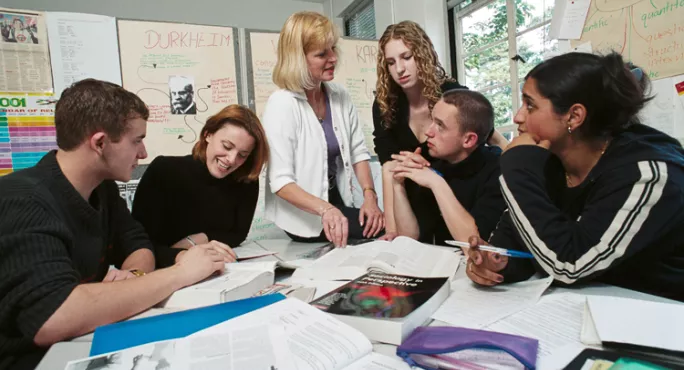If you want to create better lessons, then one school believes it has the answer: getting students to help you plan them.
The project, run by Parliament Hill School in London, sees students and teachers co-plan either a single lesson or strike up a more long-term planning partnership.
“We’re always looking for ways for students to take on real and meaningful leadership roles, and the co-planners project does exactly that,” says Susan Higgins, headteacher of Parliament Hill School. “Not only has it had a significant impact on classroom practice, but it provides valuable opportunities for student voice and this has a measurable impact on the quality of learning.”
While some will see this as student voice gone too far, others will praise the move as good for students, good for teachers and great for workload - after all, a problem shared can be a problem halved.
The project grew out of an arguably even more ambitious idea.
“The co-planners project grew out of a previous scheme where students observed lessons and provided constructive feedback,” says Joy Morgan, assistant headteacher at Parliament Hill School. “Although valuable, the project could be daunting for teachers. The students recognised this and decided that getting involved at the planning stage would be far more useful.
“The students wanted to have an input at this early stage, to help plan interactive, differentiated, engaging learning, rather than feeding back on how this might have been achieved after the lesson.”
The students don’t stop there: some of the student co-planners also run mini-workshops for new and student teachers on “What makes a great Parliament Hill school teacher?” and “What makes a great lesson?”
“These always seem to be the highlights of induction days,” says Morgan.
Giving students this level of influence will not be palatable to all teachers, but to those that do want to embrace it, Morgan has the following advice:
1. Identify a group of able and highly reliable students
Start small to make sure that you get the project right from the outset. Identify 12-16 students, ensuring that they are reliable and respect confidentiality. Formally interview the students so that they earn their place and reveal their motivations for getting involved.
2. Train the students to co-plan lessons with teachers
Invite teachers to help you with the training by coming along and letting the students co-construct a lesson; identifying what makes great learning, deconstructing an excellent lesson, considering language to deliver difficult messages politely and practising co-planning with the volunteer teachers. You will have instant converts to promote the project for you.
3. Allocate a pair of students to a teacher to set up times to co-plan
Include co-constructing lessons with students as part of the student teacher and NQT programmes - but make it voluntary for everyone else to start with.
4. Provide an example of a co-planned lesson
Early on, ask two students and their partnership teacher to present for 5-10 minutes on the project.
@Chloe_D_C
Want to keep up with the latest education news and opinion? Follow TES on Twitter and like TES on Facebook




